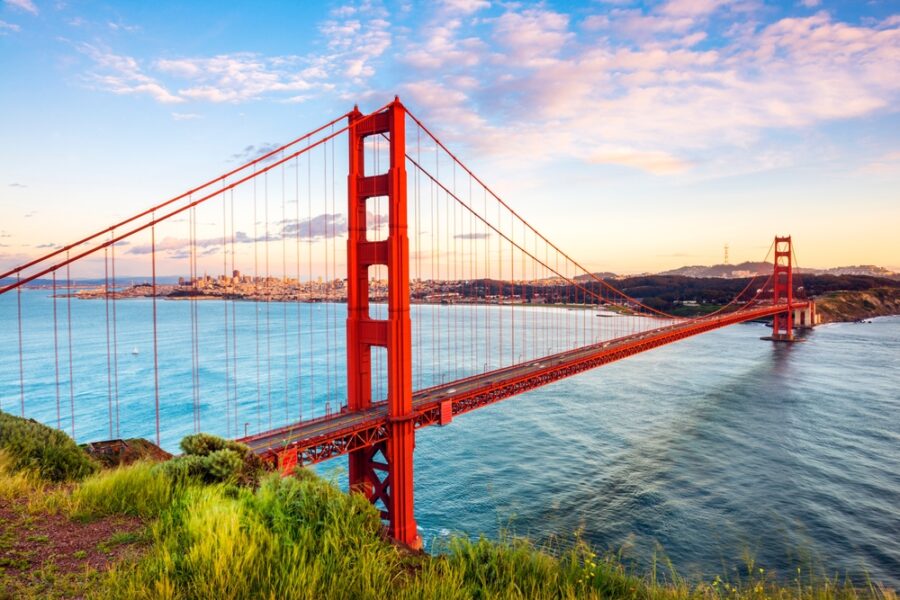Social Gaming Leadership Alliance criticizes California Governor for sweepstakes ban

California Gov. Gavin Newsom has signed Assembly Bill (AB) 831 into law, prohibiting free-to-play online social games that include sweepstakes promotions.
Sweepstakes advocacy group the Social Gaming Leadership Alliance has criticized the measure, saying it was “flawed and rushed,” arguing it removes a safe entertainment option for millions of Californians.
The bill, introduced in June through what the coalition describes as a “gut-and-amend” process, passed without direct consultation with the industry.
Several tribes, including the Kletsel Dehe Wintun Nation, the Sherwood Valley Rancheria of Pomo Indians, the Mechoopda Indian Tribe of Chico Rancheria, and the Big Lagoon Rancheria, are opposed to AB831, arguing that it restricts the economic opportunities of smaller tribes and infringes on their sovereignty.
Industry research from gaming analysts Eilers & Krejcik estimated the ban could erase about US$1 billion in annual economic impact and around US$200 million to US$300 million in potential yearly tax revenue.
Findings from a Social Gaming Leadership Alliance poll also revealed that California voters supported regulating and taxing online social gaming rather than banning it, with 85% in favor.
Jeff Duncan, Executive Director of the Social Gaming Leadership Alliance, said, “Voters, players, California tribes, and operators all made their position clear; they didn’t want a ban on this popular, safe form of entertainment. We hoped Governor Newsom would see past anti-competitive pressures and veto AB831, but he chose the short-sighted path.”
The Social Gaming Leadership Alliance stated that it will continue to advocate for regulation that respects voter preferences, supports economic growth, and protects consumer choice.
Charlotte Capewell brings her passion for storytelling and expertise in writing, researching, and the gambling industry to every article she writes. Her specialties include the US gambling industry, regulator legislation, igaming, and more.
Verticals:
Sectors:
Topics:
Dig Deeper
The Backstory
How a quiet bill became a sweeping ban
California’s new prohibition on sweepstakes-style social casinos traces back to Assembly Bill 831, a measure that moved through Sacramento with unusual speed after a midyear “gut-and-amend” maneuver. The bill, which lawmakers advanced with little direct industry consultation, sailed through on Sept. 12 with a 63-0 Assembly vote before heading to Gov. Gavin Newsom. After Newsom signed it, the Social Gaming Leadership Alliance blasted the law as rushed and overbroad, saying it shuts down a popular form of free-to-play entertainment rather than crafting guardrails.
The text and history of the measure show how quickly the state landed on prohibition. The enrolled language on the Legislature’s site, AB 831 bill text and bill history, delineate a broad definition of sweepstakes operations and set out enforcement tools that operators warn could criminalize mainstream promotional mechanics used across digital entertainment. Supporters framed the bill as consumer protection. Opponents said lawmakers conflated illegal gambling with lawful promotional sweepstakes that do not require purchases.
Before the signature, the Social Gaming Leadership Alliance tried to steer the outcome toward a veto. The group argued that lawmakers should regulate and tax the sector rather than ban it, pointing to voter sentiment and a preference for oversight. Its push is documented in an appeal to Newsom to reject the bill, which noted the unanimous Assembly vote and sought talks with the governor’s office to consider alternatives to a ban. That outreach is detailed in the group’s veto campaign.
Tribal fault lines and sovereignty concerns
California’s tribal nations were not united behind AB 831. A cohort of smaller and more geographically isolated tribes, including the Kletsel Dehe Wintun Nation, Sherwood Valley Rancheria of Pomo Indians, Mechoopda Indian Tribe of Chico Rancheria and Big Lagoon Rancheria, publicly opposed the bill. They argued it would curtail economic opportunities and edge into tribal sovereignty by layering criminal penalties over activities tied to their digital strategies. Their coordinated objections are outlined in a joint protest from four tribes, which flagged disparities between larger casino operators and small nations that lean more on digital channels.
The clash underscores a broader debate over how online entertainment intersects with tribal compacts and state enforcement. Opponents say the state’s one-size-fits-all approach ignores the reality that social games with sweepstakes mechanics have become part of the economic toolkit for smaller tribes. They also contend that criminal provisions risk conflict with federal Indian law. That tension shaped the late-stage lobbying around AB 831 and figures prominently in the coalition that plans to challenge or narrow the law’s enforcement.
The industry coalesces, then collides with Sacramento
The Social Gaming Leadership Alliance emerged earlier as a response to mounting statehouse scrutiny. Launched by Australian operator VGW with a roster of developers and service providers, the coalition set out to codify best practices on age gates, data protection and responsible play while arguing for “free-to-play” access and clear separation from real-money gambling. The formation is detailed in VGW’s launch of the alliance, which lists Playstudios, Yellow Social Interactive, ARB Interactive, B-Two Operations and payments firm Nuvei among participants. Former Congressman Jeff Duncan serves as executive director.
That infrastructure gave the group a platform once AB 831 began moving. In the runup to Newsom’s decision, the alliance emphasized two planks: economic impact and voter preference. It cited research from analysts at Eilers & Krejcik and internal polling to argue that a blanket ban would erase a sizable market and foreclose tax revenue. After the signature, the alliance reiterated those points, saying policymakers chose prohibition over calibrated regulation and consumer tools. Its post-signature response is captured in the alliance’s critique of Newsom’s decision.
The group’s case leans on a set of public materials and data. In California-specific analyses, the alliance has published a report on the economic impact of social casinos with sweepstakes and a companion slide deck summarizing findings. Those documents estimate roughly $1 billion in annual activity at stake and suggest that regulating the sector could yield $200 million to $300 million a year in tax revenue. The alliance’s polling says Californians prefer regulation and taxation to bans, with 85 percent in favor of allowing social games under rules and oversight. These materials formed the backbone of the lobbying effort against AB 831 and preview the arguments likely to surface in any legislative cleanup or litigation.
A national pattern takes shape
California’s move is not isolated. Lawmakers in New Jersey and Massachusetts are advancing broad restrictions on dual-currency sweepstakes platforms that operate outside traditional gambling statutes. In Trenton, the Legislature passed Assembly Bill 5447, which would ban sweepstakes gaming, including promotional sweepstakes that do not mandate a purchase. The Social and Promotional Games Association urged Gov. Phil Murphy to veto the measure, warning it would mischaracterize a lawful promotional practice common to major brands and chill the state’s tech profile. The group’s argument appears in its New Jersey veto appeal and an advocacy update outlining potential fallout for marketing and digital engagement.
In Boston, Massachusetts lawmakers are weighing H.4431, which would outlaw dual-currency sweepstakes, add fines of $10,000 to $100,000, threaten license revocations and enable up to two years in prison for repeat offenses. The same bill would authorize taxed online casino gaming for the state’s three licensees, a juxtaposition that rankles social game operators who see a protectionist tilt. The Social Gaming Leadership Alliance has publicly opposed the Massachusetts proposal, arguing it would criminalize mainstream social products while steering consumers to real-money gambling alternatives. A sector snapshot appears in coverage of the Massachusetts bill, which also notes the simultaneous push to legalize online casino play with a 15 percent tax.
This coordinated wave suggests states are testing divergent answers to the same question: whether to fold social sweepstakes platforms into gambling regimes, build bespoke regulatory lanes or close the category entirely. Industry groups maintain that baseline rules on age verification, geolocation and consumer disclosures can mitigate risks without erasing a category used by tens of millions.
What’s at stake now
With AB 831 signed, California becomes the highest-profile case study for a prohibition-first approach. Operators will have to unwind products or test legal theories at the margins. Tribes that counted on social products for reach may look to courts or a trailer bill to narrow definitions and remove criminal exposure. The alliance is expected to keep pressing for a regulatory framework anchored in consumer protections and taxation, a position it set out in its pre-signature appeals and reiterated after enactment.
The next moves in New Jersey and Massachusetts could shape momentum. A Murphy veto would signal space for regulation over bans. A Massachusetts crackdown paired with online casino legalization would reinforce a carve-out model that favors licensed gambling incumbents. Either way, California’s experience — from a late-session rewrite to a rapid signature — is now the template others will study as they weigh how to police a fast-evolving corner of digital entertainment.







